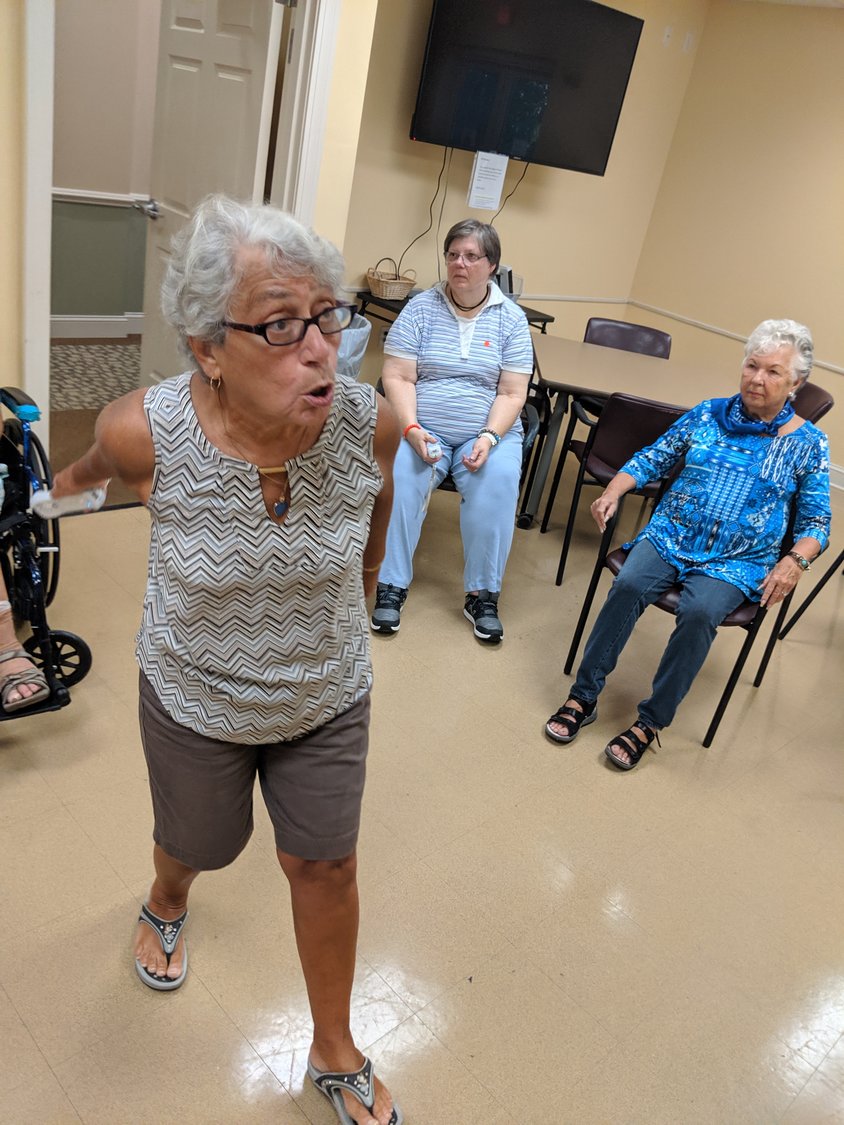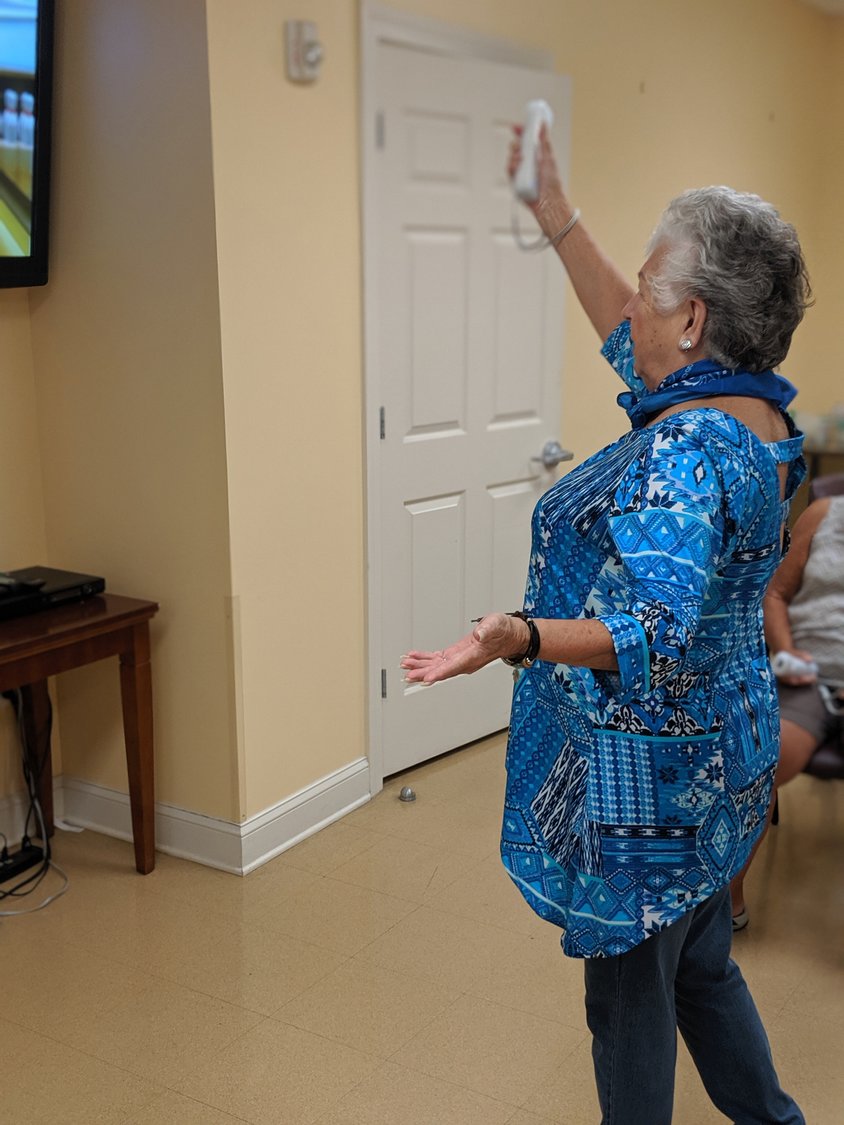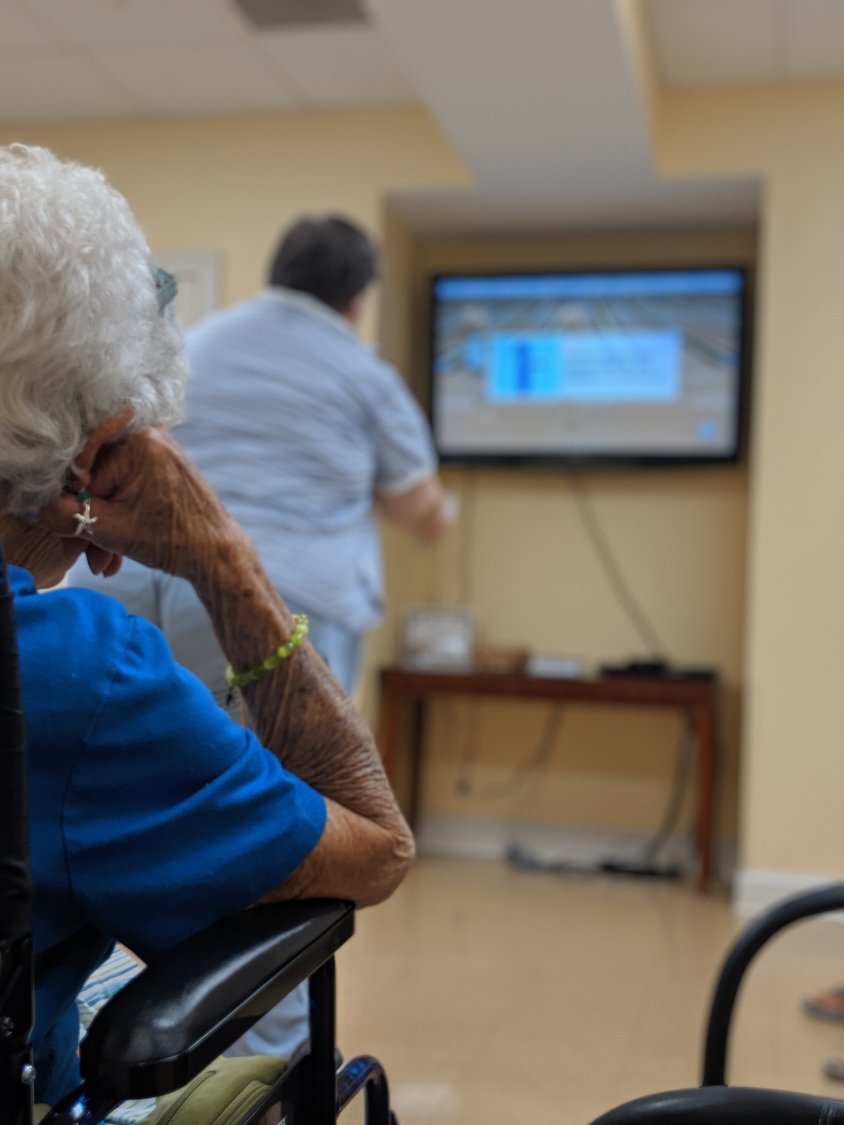Seniors embrace the digital world
Studies show how technology improves cognitive function in older adults
Cynthia floats to the middle of the lane and slowly aligns her body to be just shy of the center pin. She cocks her arm back and hurls the ball, which connects perfectly with her aim and causes a mass cataclysm of pins knocking and tumbling down. A strike.
Cynthia, herself explodes. “YES!” she screams, “STRIKE!”
Her teammates congratulate her, excited for her accomplishment. The rest of the Senior Center is very quiet, with the shuffling of feet heard only between the crash of pins and excitement.
No, there is not a bowling alley in the back room of THE PLAYERS Senior Center. There is only a tiny white box and a television screen to host the tournament for National Senior League Wii Bowling Championship. The seniors at the center call themselves the COA Jaguars and are fierce contenders for the title. They’ve won first place in the nation in the past and their team captain, Betty Kraft, has recently bowled a perfect game.
Secondary to having fun, it turns out seniors who play digital games are also improving their brain function.
The axiom “video games will rot your brain,” is proving to be inversely correlated as new studies on the impact of games are concluding a beneficial effect on cognition. The trend toward implementing the games in education has led a few researchers to also look at its influence on memory decline.
As it turns out, grandma isn’t a “noob” and she isn’t alone.
A 2013 study published in “Computers in Human Behavior” showed that not only are seniors improving their emotional health with digital games, but they’re playing with their friends surprising numbers. The survey revealed that almost a third of seniors reported on using video games at least once a week, with 17% playing them every day.
Former Ponte Vedra resident, Dennis Berkholtz, founded the NSL tournament in 2009. Today he lives in Atlanta and donates his time to coordinating the annual tournament which has almost 300 teams from 80 different communities across the United States. He originally got the idea when his parents were staying at an assisted living facility.
“I was amazed at that time that the senior community did so little for their residents either physically or mentally,” he said.
Berkholtz was playing the original Wii console with friends, which had just come out three years earlier. He immediately noticed the bowling game’s simple user setup and low impact play, making it the perfect transition game for those unfamiliar with video game consoles like seniors.
Recently, Berkholtz said he is getting more individuals with dementia participating. In fact, he recently visited a facility with two teams consisting solely of dementia patients.
“For whatever reason, maybe they bowled in their younger years, but they recognize what they are doing,” he said. “It gets them up and out and all they got to do is press that button and laugh when the ball goes somewhere.”
A 2017 study by the U.S. National Institutes of Health indicated that it was possible video games could cut the risk of dementia by 30%. Another study published just last year by Oxford University suggested that neurological decay could even be slowed down by using them.
At the Palms at Ponte Vedra retirement community, a team with two players from MorningSide, a memory care facility, play Wii bowling every day they can get out of bed. Staff encourages them and when they hit strikes, everyone cheers. Resident Estelle Barfield plays from her chair, flicking her wrist to send slow balls precisely aimed like a master marksman at spares, which she calls “her specialty.”
Exercise alone doesn’t account for the cognitive improvement the study indicated. There is speculation that the games’ ability to improve motor skills, develop a technique and promote social interaction help seniors create a buffer for dementia.
Primarily, however, social interaction has long been known to be a key element in making seniors happier and healthier over time.
Asking any senior player why they enjoy the game and what keeps them coming back to play, the usual answer is “the friendships.” The game’s ability to bring people together creates an environment of comradery that mimics actual sports while also being low impact for aging adults. Wii bowling isn’t the only technology facilities like the Palms are using, however. In addition, they provide iPads with games for seniors with failing eyesight and encourage computer literacy among members wanting to connect with their family over the web. It’s a skill that not only encourages learning outside of their comfort zone but promotes an easy way to socialize from their homes.
Resident Bud Dalton has a Windows desktop computer set up in his living quarters. He likes it because, “you can check out things on google and know just about anything.” Another reason is to stay connected to his family, which he is on Facebook for. He has 10 grandkids and four great-grandkids, so he has his plate full. He likes watching videos of them on his feed but complains that since he “hooked up” with people outside his family, he is “loaded with crud” on his news feed. He is still working out the kinks of being connected.
“It’s unbelievable the stuff I got,” Dalton said. “I got some people on here that I just don't know anything about.”
Recently, however, he figured out how to “slumber” people (snooze) so he is making progress with getting back to what’s important — his family.














